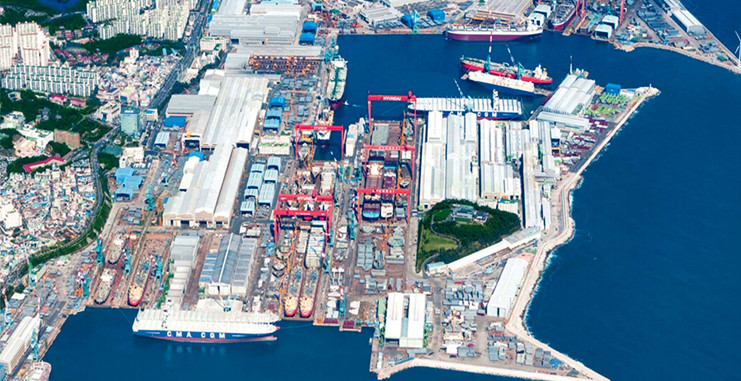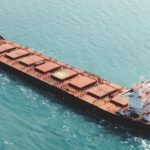Daewoo Shipbuilding & Marine Engineering (DSME) and Samsung Heavy Industries have remained cautious about hiring blue-collar workers, despite labor shortage concerns resulting from the recent recovery of the shipbuilding market, according to industry officials, Wednesday.
Their stance was in stark contrast to Hyundai Heavy Industries (HHI) Group’s recent decision to resume employment of regular blue-collar workers for HHI and Hyundai Mipo Dockyard for the first time in seven years.
After domestic shipbuilders won a record amount of orders last year, HHI recruited full-time blue-collar workers in February, among its subcontracted workers with over three years of experience. Hyundai Mipo also hired regular employees with expertise in welding, plumbing, electricity and machinery.
In addition, HHI Group has been recruiting employees at its non-shipbuilding subsidiaries who want to transfer to HHI, Hyundai Mipo or Hyundai Samho Heavy Industries to fill the demand for workers at the group’s shipyards.
In March, the group started recruiting around 400 new and experienced employees, only a few months after it finished hiring another 400 workers.
Although both DSME and Samsung Heavy Industries recruited their new employees last month, they have yet to disclose their plans regarding the hiring of blue-collar workers for permanent positions.
Instead of employing regular workers, the two companies are considering signing contracts with additional subcontractors and expanding the number of industrial trainees, given that they are still struggling with losses accumulated during the long-term recession in the shipbuilding industry.
“We have trained apprentices at our technical training center,” a DSME spokesman said, without mentioning the specific number of trainees to be hired as regular workers in the future.
He also noted that there is a time lag between orders and manufacturing, adding that the company should brace for the possibility of another recession due to the cyclicality of the shipbuilding industry.
A Samsung Heavy spokesman said that the construction of ships ordered in 2021 will start in 2023.
“In Korea, subcontractors are mostly in charge of manufacturing work,” he said. “They are therefore in more urgent need of workers because most of their employees left during the recession.”
Another unfavorable factor for DSME and Samsung Heavy is the outflow of their workers to HHI Group. The DSME union claimed recently that over 300 DSME and Samsung Heavy workers applied for jobs at HHI Group, which offers higher salaries.
According to the Korea Offshore & Shipbuilding Association (KOSHIPA), the nation’s shipbuilding industry will need an additional 9,500 workers this September, as they will begin building ships that have been ordered over the past few years.
“Due to the long-term recession, experienced workers have left and the inflow of new employees has been decreased, worsening the labor shortage,” KOSHIPA Managing Director Chung Seok-joo said during a forum earlier this month. “Plans are needed to secure the workforce for stable production.”
Byun Gwang-yong, mayor of the South Gyeongsang Province island of Geoje, where DSME and Samsung Heavy Industries have their shipyards, also urged the shipbuilders to raise their wages in order to prevent a labor shortage from halting their production and causing another recession in the regional economy.
Source: Hellenic Shipping News





